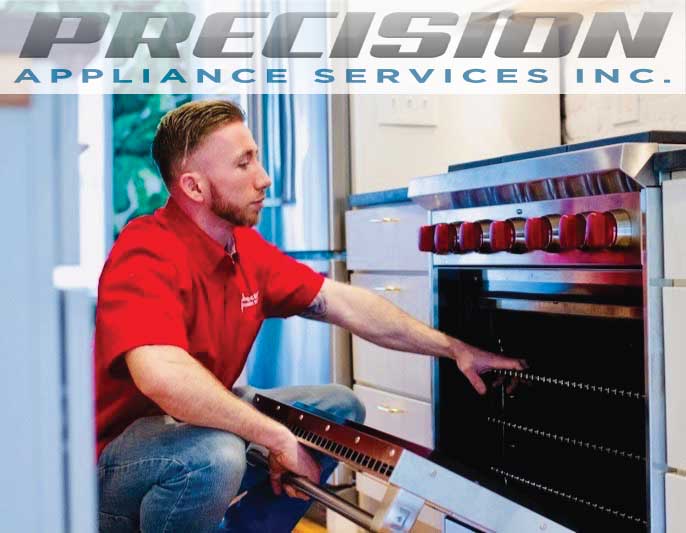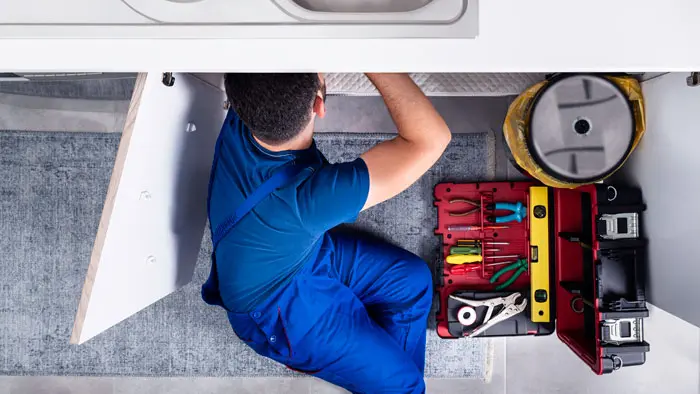The Ultimate Guide to Recognizing Device Fixing at Home
When your refrigerator stops cooling down or your oven declines to heat, it can really feel frustrating. Recognizing device repair work in your home can conserve you time and cash. You'll learn to identify signs and symptoms, use crucial devices, and comply with a systematic troubleshooting process. Before you start, there are vital security precautions you need to take into account. What are one of the most usual problems, and exactly how can you repair them? Let's explore the essentials.
Common Appliance Issues and Their Symptoms
When your devices begin acting up, it's necessary to identify the indications at an early stage. Disregarding them can lead to bigger issues and costly repairs. For instance, if your fridge isn't cooling appropriately, you might discover cozy places or condensation creating. This might suggest a stopping working compressor or a blocked vent.Your dish washer might reveal issues with dirty meals or uncommon noises throughout cycles. If you hear grinding or clanking, it's time to investigate.A cleaning equipment that won't spin or drain can leave you with soggy laundry, recommending a clogged drainpipe or a malfunctioning pump.Lastly, if your oven's temperature seems off or it takes for life to pre-heat, you may be managing a defective thermostat. By staying alert to these signs, you can deal with problems prior to they escalate right into major repair work.
Necessary Tools for Home Appliance Repair Service
When you're dealing with device repairs at home, having the right tools is vital. Basic hand devices like screwdrivers and pliers will help you disassemble and fix numerous home appliances, while electrical testing tools ensure you're functioning safely with wiring. Let's look at what you require to start on your fixing trip.
Basic Hand Devices
Having the right devices is necessary for efficient appliance repair service in your home. Begin with a trusted screwdriver collection, including both flathead and Phillips kinds, as screws are usual in appliance setting up. Pliers are likewise essential; they assist with gripping, twisting, and cutting cords or small elements. A pair of needle-nose pliers can reach limited spots conveniently. You'll need an excellent adjustable wrench for tightening up or loosening up nuts and screws. An energy blade comes in handy for cutting via packaging or insulation. Do not neglect a strong workbench or surface to securely arrange your tools and parts. With these fundamental hand tools, you'll be well-prepared to tackle most device repair services that come your way.
Electric Screening Devices
Together with standard hand devices, electrical screening devices play an essential role in home appliance repair. These devices assist you diagnose electric concerns and guarantee home appliances operate securely. A multimeter is vital; it measures voltage, present, and resistance, allowing you to determine problems swiftly. A non-contact voltage tester is an additional must-have, allowing you spot online cords without making straight call, improving your security. Clamp meters are great for determining present flow in cables without detaching them, conserving you time and effort. Additionally, circuit testers can rapidly inspect if electrical outlets are working correctly. By utilizing these devices, you'll enhance your troubleshooting procedure and improve your fixing abilities, making device maintenance a great deal less complicated.
Step-by-Step Guide to Diagnosing Appliance Issues
When your home appliance acts up, it can be frustrating, but diagnosing the concern does not need to be frustrating. You'll find out to identify common issues and use reliable fixing methods. Let's walk through the actions to obtain your home appliance back in working order.
Common Appliance Problems

Repairing Strategies Explained

Fixing Major Kitchen Area Home Appliances: A Closer Look
Have you ever questioned just how to deal with usual problems with your cooking area appliances? Repairing major kitchen devices like refrigerators, ovens, and dish washers can be much easier than you believe. Beginning by determining the issue-- whether it's a refrigerator not cooling down or a stove that won't warm. Typically, a simple reset or inspecting the source of power can fix the issue.For fridges, clean the condenser coils and inspect the door seals. If your oven's not home heating, inspect the heating component and thermostat. Dishwashers could just require a tidy filter or a reset to get them back at work. Constantly unplug the device prior to diving into repairs to assure your safety.Don' t neglect to speak with the customer guidebook for details repairing tips associated to your version. With a bit of patience and the right tools, you can confidently take on appliance repair work and conserve cash while doing so!

Troubleshooting Laundry Appliances: Tips and Techniques
When your laundry devices start breaking down, it can really feel overwhelming, however fixing them doesn't have to be a hassle. Beginning by checking the power supply. Validate the appliance is plugged in and the outlet is operating. Next off, evaluate the door or lid switch; a malfunctioning button can protect against the equipment from operating.For washing machines, if it's not spinning, inspect for unbalanced loads. Redistributing the clothes could resolve the concern. If your clothes dryer isn't home heating, tidy the dust filter and inspect the vent for blockages.Listen for unusual noises; they can indicate an issue. If your home appliance is leaking, inspect the hose pipes for cracks or loose connections. File any mistake codes presented on electronic screens, as they can direct you in determining the problem. Seek advice from the individual manual for specific fixing tips connected to your design.
Safety Precautions to Take Throughout Repairs
Prior to you start any kind of home appliance repair services, it's important to prioritize safety and security to avoid mishaps or injuries. Disconnect the home appliance or transform off the circuit breaker to guarantee no power reaches it while you function. Use shielded tools to decrease the danger of electrical shock. Put on safety and security goggles and gloves to protect on your own from sharp sides or debris (Dependable Refrigeration & Appliance Repair Service Washing Machine Repair).Make particular your workspace is clean and well-lit, so you can see what you're doing. Maintain kids and animals away from the location to avoid interruptions and possible threats. If you're managing gas appliances, be added careful; check for leakages prior to proceeding.Take your time, and do not rush through repair services. If you feel unclear about any type of action, it's much better to stop and research study than to presume. Complying with these preventative measures will certainly help create a more secure environment for your DIY device fixing job
When to Call an Expert for Aid
How do you know if it's time to call in a specialist for device repair work? If you have actually tried fundamental troubleshooting without success, it's a clear indication. For example, if your home appliance still will not start or shows uncommon sounds after resetting it, don't hesitate to look for expert help.When you notice leakages, smoke, or burning smells, prioritize security and call a pro right away. These problems can result more info in even more substantial damages or present risks to your home.Also, if your home appliance is under warranty, calling an expert is typically the best course. They can guarantee that fixings will not invalidate your warranty, conserving you money in the lengthy run.Finally, if you're unclear or unpleasant with complex repairs, it's important to leave it to the specialists. Bear in mind, dealing with difficult issues without the best proficiency can lead to costly mistakes. Depend on an expert when doubtful!
Frequently Asked Inquiries
How Can I Prevent Appliance Problems in the Future?
To stop home appliance problems in the future, you should carry out normal maintenance, look for damage, tidy filters, and avoid overloading. Remaining aggressive will assist expand their lifespan and keep them running smoothly.
What Are the Many Common DIY Home Appliance Repair Mistakes?
You might neglect safety and security precautions, avoid fixing actions, or make use of wrong tools when attempting DIY home appliance fixings. Hurrying the process or overlooking producer standards can bring about even more considerable concerns and pricey blunders. Keep patient and informed!
How Do I Know if a Part Demands Substitute?
You can inform if a part requires substitute by inspecting for uncommon sounds, leakages, or irregular performance. If the device battles to run properly or reveals noticeable damage, it's likely time for a replacement.
Can I Use Generic Parts for Appliance Repairs?
Yes, you can use generic components for home appliance repair services, but ascertain they work - Fixes washers and dryers Oro valley Dependable Appliance Repair. Common components could save you cash, however they can affect efficiency or longevity, so evaluate your options very carefully before making a choice
What Guarantees Cover Appliance Repairs?
Most device warranties cover repairs for producing defects, yet they frequently exclude damages from abuse. Inspect your warranty terms meticulously, as some might require using certified specialists and original components for protection to stay valid.